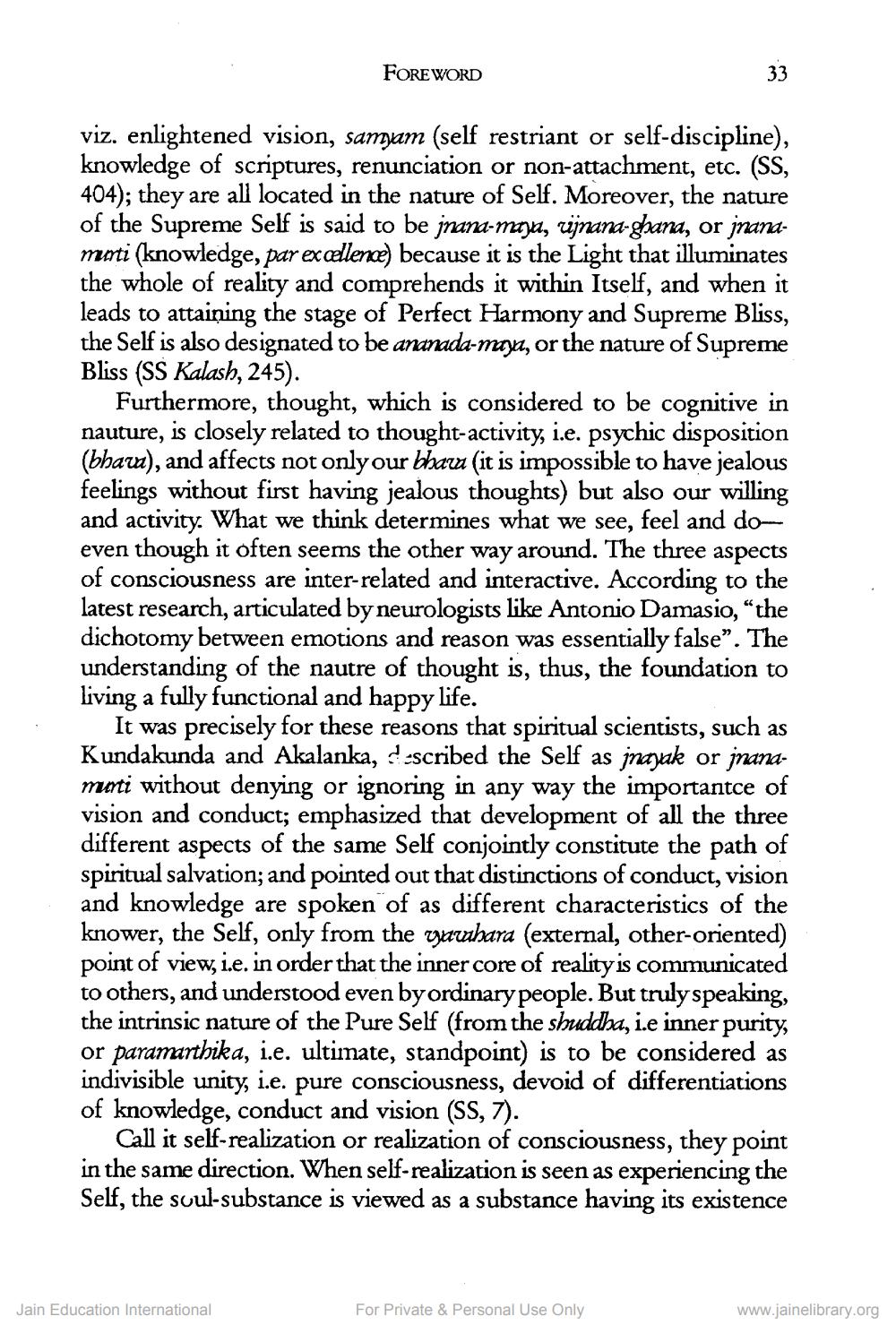________________
FOREWORD
viz. enlightened vision, samyam (self restriant or self-discipline), knowledge of scriptures, renunciation or non-attachment, etc. (SS, 404); they are all located in the nature of Self. Moreover, the nature of the Supreme Self is said to be jnana-maja, vijnana-ghana, or jnanamoti (knowledge, par excellence) because it is the Light that illuminates the whole of reality and comprehends it within Itself, and when it leads to attaining the stage of Perfect Harmony and Supreme Bliss, the Self is also designated to be ananada-maya, or the nature of Supreme Bliss (SS Kalash, 245).
Furthermore, thought, which is considered to be cognitive in nauture, is closely related to thought-activity, i.e. psychic disposition (bhava), and affects not only our bharu (it is impossible to have jealous feelings without first having jealous thoughts) but also our willing and activity. What we think determines what we see, feel and doeven though it often seems the other way around. The three aspects of consciousness are inter-related and interactive. According to the latest research, articulated by neurologists like Antonio Damasio, "the dichotomy between emotions and reason was essentially false”. The understanding of the nautre of thought is, thus, the foundation to living a fully functional and happy life.
It was precisely for these reasons that spiritual scientists, such as Kundakunda and Akalanka, described the Self as jnayak or jnanamuuti without denying or ignoring in any way the importantce of vision and conduct; emphasized that development of all the three different aspects of the same Self conjointly constitute the path of spiritual salvation; and pointed out that distinctions of conduct, vision and knowledge are spoken of as different characteristics of the knower, the Self, only from the yarahara (external, other-oriented) point of view, i.e. in order that the inner core of reality is communicated to others, and understood even by ordinary people. But truly speaking, the intrinsic nature of the Pure Self (from the shuddha, i.e inner purity, or paramarthika, i.e. ultimate, standpoint) is to be considered as indivisible unity, i.e. pure consciousness, devoid of differentiations of knowledge, conduct and vision (SS, 7).
Call it self-realization or realization of consciousness, they point in the same direction. When self-realization is seen as experiencing the Self, the suul-substance is viewed as a substance having its existence
Jain Education International
For Private & Personal Use Only
www.jainelibrary.org




